This op-ed was originally published by Project Syndicate.
The COVID-19 crisis represents an unprecedented test of human solidarity. Will the wealthy—or, indeed, all those with stable incomes or savings cushions—embrace measures to support the poor and economically insecure? Will the young, among whom the mortality rate is lower, make sacrifices to protect the old? And will people in rich countries accept resource transfers to poor countries?
Only if the answer to all three questions is yes will the world be able to minimize the fallout of the pandemic that has killed nearly 38,000 people and crippled the global economy. And yet that outcome is nowhere near guaranteed.
The first form of solidarity that is being tested—across income groups—may be the easiest to secure. COVID-19 has infected the likes of the United Kingdom’s prime minister and crown prince, professional athletes, and multiple Hollywood celebrities, showing that it has no regard for whether a person is rich or poor.
But the economic consequences of public-health measures—such as indefinite business closures and lockdowns—will be borne disproportionately by less economically secure groups, including low-income earners, hourly workers, and those who cannot work remotely. In designing strategies to offset the pandemic’s economic damage, governments must consider these differences.
So far, this is not happening to the required extent. In the United States, for example, many measures, such as expanded sickness benefits, do help lower-income groups, but should have been in place long ago, as they are in other advanced economies. Other actions, such as sending checks to all citizens and ordering federal agencies to halt evictions and foreclosures, hold more promise, but remain far from sufficient to protect the country’s economically vulnerable.
Building solidarity across income groups will require leaders to foster the kind of selfless patriotism that facilitates shared sacrifice in wartime (while rejecting the kind of narrow-minded nationalism that undermines international solidarity). It helps that the hoary argument that support for the poor undermines work incentives, hardly convincing in normal times, loses all credibility during a pandemic. If nothing else works, citizens and political leaders should bear in mind that lower-income individuals remain valuable consumers and (in democracies, at least) voters.
The second dimension of solidarity being tested today is intergenerational. Given the economic (and social) consequences of self-isolation measures, securing the long-term cooperation of younger generations—who are vulnerable to serious complications from COVID-19, but die at lower rates—may not be easy.
Family ties could go a long way toward convincing them to adhere to social distancing. But, as the fight against climate change has shown, that approach has its limits—at least in the opposite direction. Today’s older generations have so far proved reluctant to make the sacrifices that will be required to secure a more sustainable future for their children and grandchildren.
In this sense, however, the pandemic may offer an opportunity for progress. If young people remain dedicated to drastic short-term measures to contain the COVID-19 outbreak, older generations can surely make a medium-term commitment to ambitious climate action.
The third COVID-19 solidarity test will be the most difficult to pass. At a time when political leaders are already demanding so much solidarity within their countries, and national economies are suffering severe losses, generous resource transfers to struggling developing countries will be a difficult pill to swallow. Already, some economies, such as France and Germany, have limited or banned exports of critical medical equipment.
But if a country with a per capita income of $50,000—about the level in Canada and Germany, and lower than in Australia, the Netherlands, and the U.S.—suffered a 10 percent economic contraction, it would still be 10 times better off than low- and lower-middle-income countries were before the pandemic. Perhaps more salient, if poor countries are unable to contain their COVID-19 outbreaks, the virus could reemerge in rich countries that thought they had escaped it.
Solidarity with developing countries is thus a matter of both morality and long-term vision. Failure to pass this solidarity test would leave deep psychological wounds in left-behind countries, paving the way for all manner of extremism and new crises—from pandemics to conflicts—that would threaten everyone.
As the developed countries implement measures to counter the economic consequences of the COVID-19 pandemic, they should also work with international institutions to develop strategies for helping the developing world. While providing immediate liquidity, as the International Monetary Fund proposes, is a good first step, simply piling on more debt is not a sustainable solution. Grants and another round of debt forgiveness will also be needed, and international institutions must ensure that all countries get the medical equipment and other support—including food—that they need.
The world is about to find out whether decades of economic and financial globalization can lead to a deeper understanding of the ties—social, moral, and personal—that bind all people together. Only by recognizing and strengthening those ties can we replace our fragile and conflict-ridden system, built in the service of hyperefficiency and short-term gain, with more sustainable arrangements based on economic, generational, and international solidarity.
The Brookings Institution is committed to quality, independence, and impact.
We are supported by a diverse array of funders. In line with our values and policies, each Brookings publication represents the sole views of its author(s).
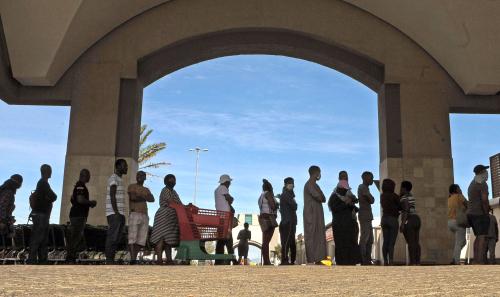
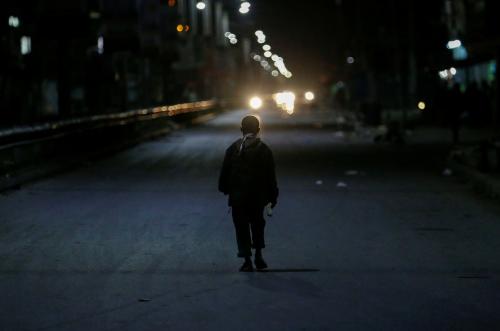
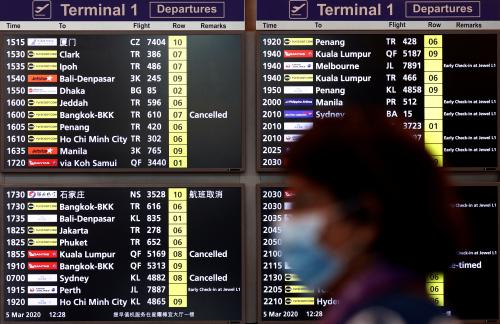
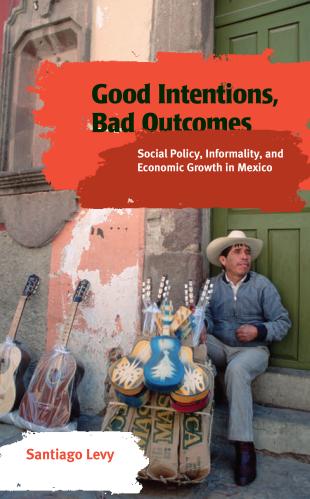
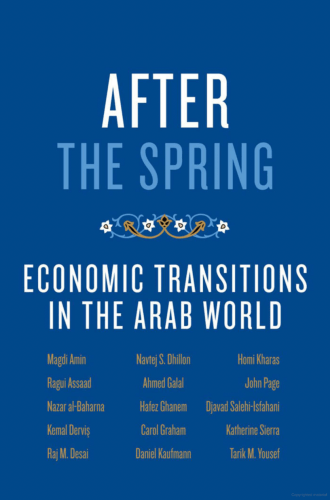
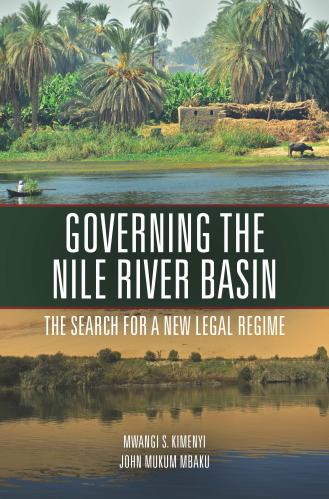




Commentary
Op-edThe COVID-19 solidarity test
March 31, 2020